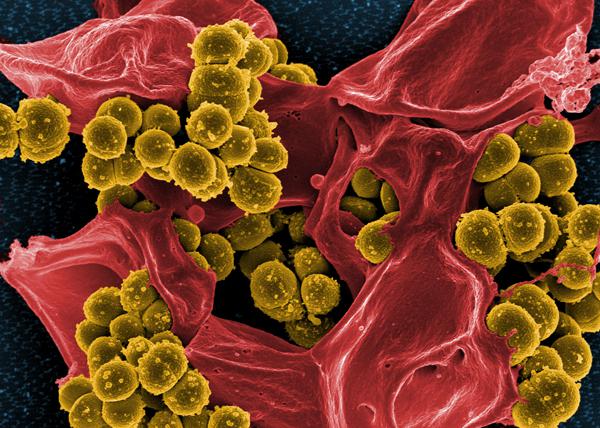MRSA
Staphylococcus aureus (MRSA)
Methicillin-resistant Staphylococcus aureus (MRSA) is the full name of a bacteria strain that has developed resistance to beta-lactam antibiotics, including penicillins and cephalosporins.
MRSA is a big issue particularly in hospitals and nursing homes because patients there face much greater risk of infection than the general public due to open wounds, weakened immune systems, and the use of invasive medical devices.
Antibacterial properties of cannabinoids
Cannabinoids found in cannabis are antiseptic, antimicrobial substances with very strong proven antibacterial properties. In 2008, the University of Eastern Piedmont and the University of London tested the effects of five different cannabinoids on several multi-resistant strains of bacteria, including MRSA. All five cannabinoids showed “strong antibacterial effects”. According to the authors of the study, the cannabinoids proved to be “extremely effective in preventing the spread of MRSA bacteria”.
THC, CBN, CBD and CBC – all these cannabinoids are capable of killing the MRSA bacteria. CBC, CBG and CBD have no psychoactive effects.
No bacteria have developed resistance to cannabinoids so far which should be a reason for starting clinical tests of these cannabinoids in humans.
Another study, also carried out in 2008, found out that substances other than cannabinoids, which are also present in cannabis (e.g. terpenes), can also protect the human body against MRSA and malaria.

